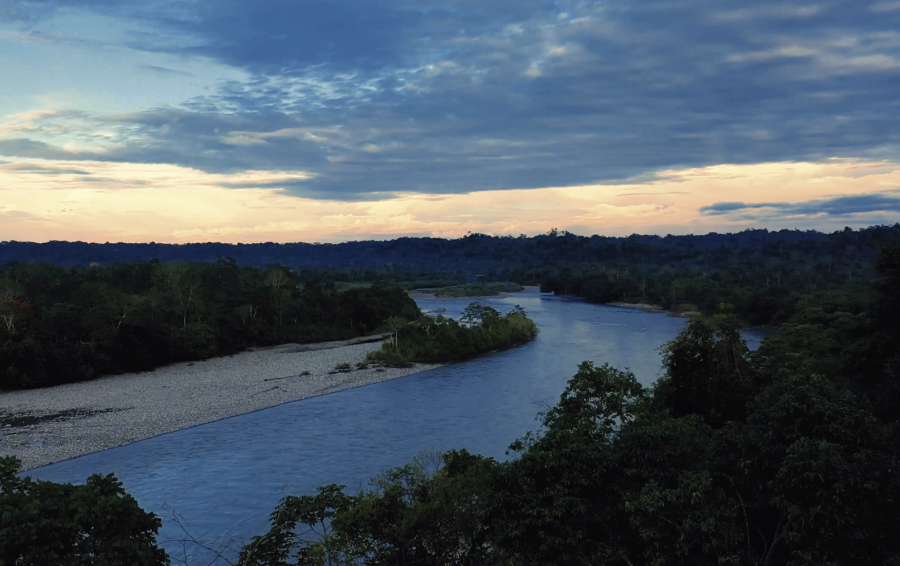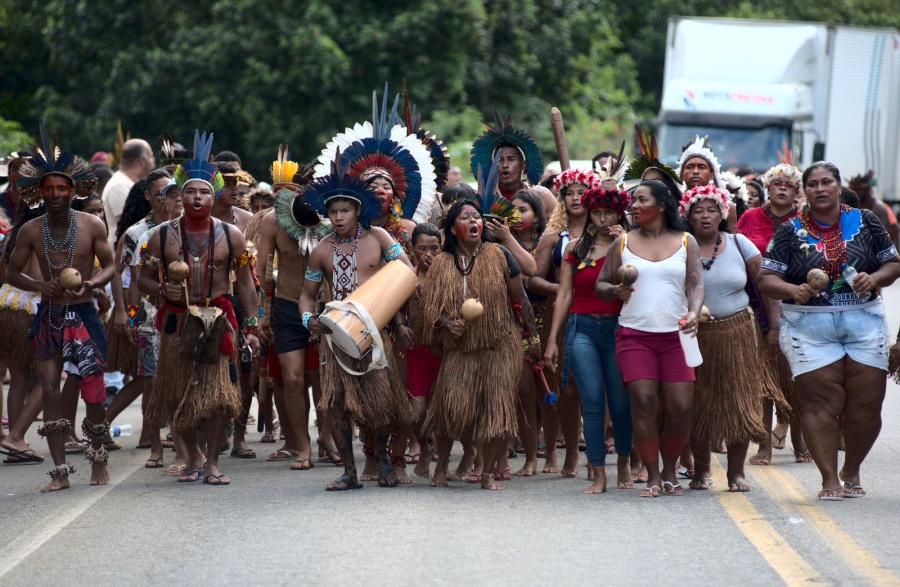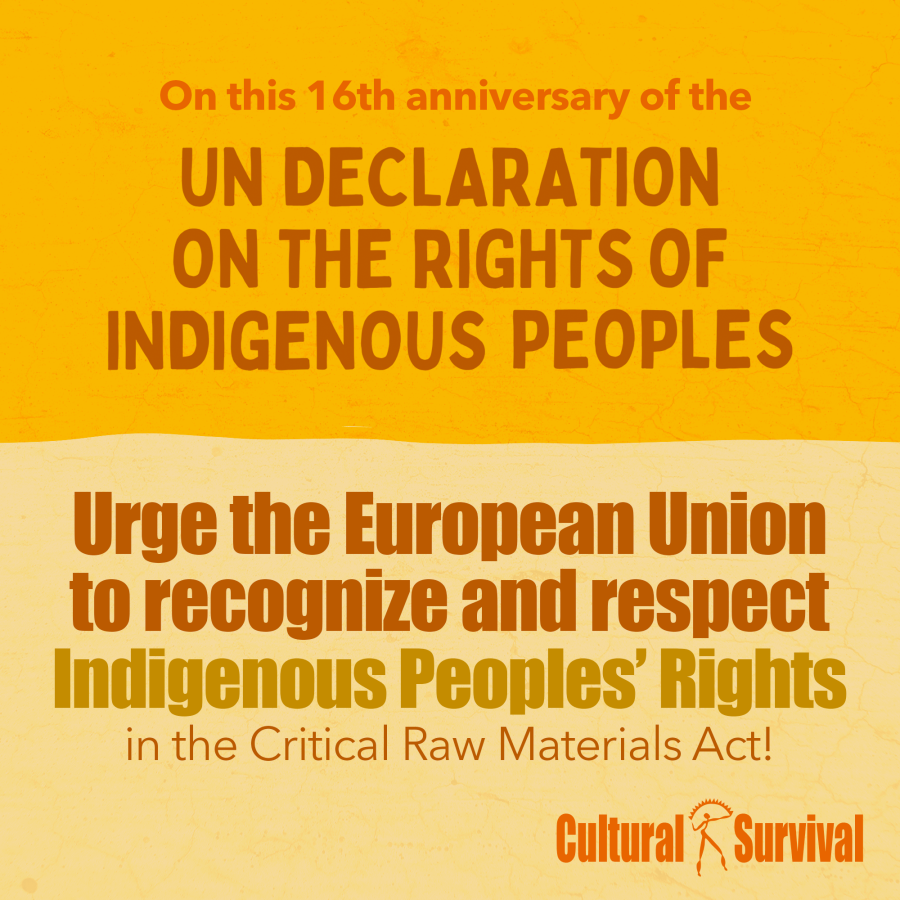After nearly a quarter-century of negotiation, the past six months have seen significant momentum towards a final text of a United Nations Declaration on the Rights of Indigenous Peoples. If it continues at this pace, the U.N. General Assembly could adopt a final text before the end of the year.
At the same time, international shame at the performance of the U.N. Human Rights Commission—the United Nations’ oldest human rights body—has led to widespread clamor for reforms that could be instituted between the time of this writing and the time this issue reaches the newsstands.
Together, these two developments augur a significant new opportunity to strengthen genuine protections for the rights of the world’s indigenous peoples. To grasp the magnitude of this opportunity, it is helpful to understand the two converging processes.
Work on a U.N. Declaration on the Rights of Indigenous Peoples began in 1982 after a vast study by Special Rapporteur José Martínez Cobo demonstrated a consistent global pattern of discrimination against them. The United Nations assigned the drafting process to a working group of the Sub-Commission on the Promotion and Protection of Human Rights, an expert body that reports to the Human Rights Commission. After years of extensive consultations with indigenous peoples, as well as with governments and human rights experts, the Sub-Commission presented its Draft Declaration to the Human Rights Commission in 1994. Since then, the process has faltered due to some states’ fears about the scope of indigenous rights to self-determination and to their lands and resources. Energetic recent efforts by the governments of Norway, Mexico, and Canada have raised hopes that agreement on a text is now in sight.
While the draft declaration frequently is heralded—including in the pages of each Cultural Survival Quarterly—for its comprehensiveness and sensitivity to indigenous concerns, what less often is appreciated is what the draft declaration is not. Even after it is adopted by the General Assembly, the Declaration on the Rights of Indigenous Peoples will be just that: a declaration. Since it is not a treaty, it will not be offered to states to ratify and legally bind themselves. Nor will it create new enforcement machinery to which indigenous peoples can turn if their rights are violated.
Many of the declaration’s provisions restate already-binding customary international law or treaty law. In some countries these provisions also have been incorporated into domestic law. But as a whole, the declaration constitutes more of a common standard of achievement for the survival, dignity, and well-being of indigenous peoples than a legal text. Unless new mechanisms are created, political embarrassment is the only sanction states will suffer if they violate the declaration.
Fortuitously, the opportunity to establish more reliable means to sway states to comply with the declaration’s provisions is being presented by the restructuring of the U.N.’s human rights machinery. The proposed new body, the Human Rights Council, will be directly accountable to the U.N. General Assembly. It will be made up of states elected by the General Assembly from a pool of countries that have met threshold human rights criteria, and it will meet regularly throughout the year. The aim is to avoid the pitfalls of the current Human Rights Commission, which has long been bogged down by political infighting among states seeking to protect themselves from challenges to their own rights-violating behavior.
The challenge facing the new Human Rights Council is to build an international institution that has the capacity to motivate states to comply with current and future human rights norms, including those set forth in the Declaration on the Rights of Indigenous Peoples.
Julian Burger, Coordinator of the Unit on Indigenous Peoples at the Office of the High Commissioner for Human Rights (OHCHR), proposes that the Human Rights Council create its own high-level Working Group composed of member states and indigenous representatives to aid it in designing the next generation of norms and effective enforcement mechanisms to protect indigenous peoples’ rights. As he puts it, “It has taken 50 years of work to plant indigenous peoples’ concerns firmly on the international agenda. It would be a tragedy to lose momentum now. We need the new Human Rights Council to establish a mechanism of its own that can expand on and strengthen rights protections for indigenous peoples.”
Some might argue that indigenous peoples already have adequate voice within the United Nations through the U.N. Permanent Forum on Indigenous Issues and the Special Rapporteur on the Human Rights and Fundamental Freedoms of Indigenous Peoples. But while enormously valuable, these institutions are designed to fill niches distinct from the indigenous-rights promotion and protection body contemplated here.
The Permanent Forum will continue to exist as a sub-body of the U.N.’s Economic and Social Council (ECOSOC), and, as such, its mandate will remain focused on economic, social, and cultural development issues that range well beyond the compass of human rights enforcement. Because of its U.N. advisory and coordination role, it is not in a position to do human rights standard-setting or monitoring. The special rapporteur’s mandate consists of investigating cases, country situations, or themes involving violations of indigenous rights. While the current special rapporteur, Rodolfo Stavenhagen, has done yeoman’s work with virtually no resources, the office is too modest a mechanism to ensure the bona fide advancement of Indigenous Peoples’ rights.
Responsibility for ensuring that indigenous peoples’ rights are treated as a matter of high priority throughout the United Nations system lies with the new Human Rights Council.
Those of us who care about the protection of international human rights, and particularly about the well-being and future of the world’s most marginalized and beleaguered peoples, must seize the moment to ensure that the new Council effectively fulfills its responsibility to promote full respect for and enforcement of the Declaration on the Rights of Indigenous Peoples. You can be sure that Cultural Survival will be pressing the case this spring in Geneva.



